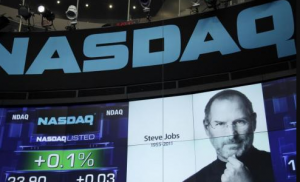Could A Shocking Recession Be Next For Stocks?
On Wednesday this week, the Federal Reserve pushed interest rates higher by a significant margin. This is the third time that interest rates have been raised in the span of a decade. The move has caused substantial unease among market participants, with some financial analysts going as far as to say current markets could sprawl into inflation in three to nine months.
The Federal Reserve raised key interest rates by 0.25 percent. The rise comes as the United States’ economy undergoes relatively slow economic growth. One of the key indicators of economic development is an increase in a country’s Gross Domestic Product. In recent government data, the country’s GDP was growing at a rate of 1.9 percent in the final quarter. These data records have been adjusted in the wake of inflation. Comparatively, the GDP rose by 1.6 percent throughout the whole of 2016 and by a larger margin of 2.6 percent in 2015.
A financial analyst, Lance Roberts, noted that there was very little evidence to show economic growth was currently occurring within the United States. In a post that he wrote, he explained, “Outside of inflated asset prices, there is little evidence of real economic growth, as witnessed by an average annual GDP growth rate of just 1.3% since 2008, which by the way is the lowest in history since…well, ever.”
Another problem between economists and the Federal Reserve has been woeful productivity. This is the average output per hour of work. Higher rates could cause both problems to worsen since corporations tend to benefit from lower borrowing costs. Reduced interest rates enable these enterprises to borrow more capital and hence acquire a larger workforce and resources. As a result, more output is produced over a shorter period. This leads to greater profits and consequently to a higher GDP.
It has also been discussed that apart from the continuous rise in the stock market, no other indicators are showing economic growth. However, following the Federal Reserve’s announcement, some stocks rose. The Dow went up by 0.5 percent, S&P closed up by 0.8 percent while the Nasdaq Composite closed markets while 0.7 percent higher. The growth of these stocks showed that the economy was growing.
In their policy statement, the Federal Reserve noted that there had been no substantial growth in the economy over recent times. Additionally, the Reserve said there had been improvements in the labor markets and that there had been a better environment for both customers and businesses in recent years.
Also, President Trump’s policies have been affecting stock markets and will continue to do so. For the most part, his decisions have turned out bullish towards the equity market. The Central Bank has been trying to adjust inflation rates to be in line with President Trump’s promises such as tax cuts and the development of infrastructure. As such, it has to keep in mind that these issues could cause such a massive boost in the economy that the bank would be left flat-footed in a bid to give more money. Interest rates would continue to spike up to a point where corporations would increase the cost of their services so high that equity markets would come tumbling down. As a result, the country would be plunged into a recession.
However, not all financial analysts share these sentiments. Researchers from Goldman, Sachs & Co., are encouraging the Federal Reserve’s move to increase the rates even higher in the threat of rising inflation. Currently, the United States is at an inflation rate of 2 percent, considered healthy for a developed country.


